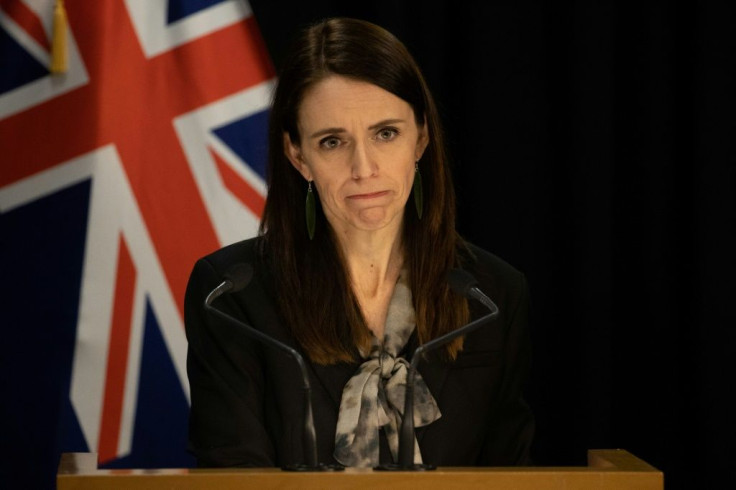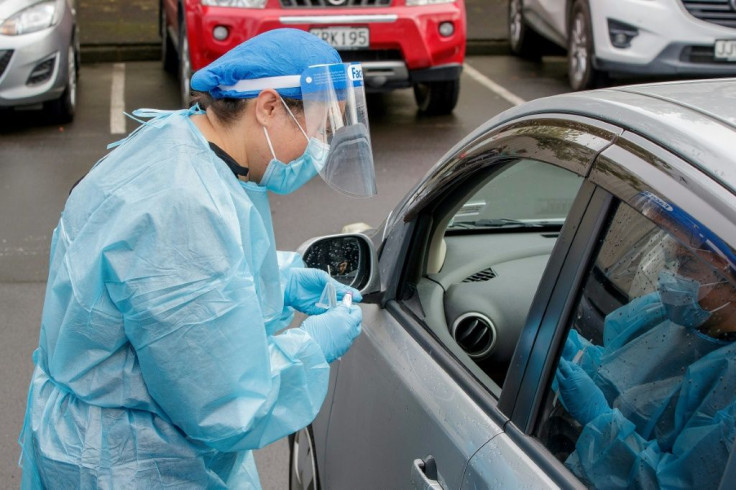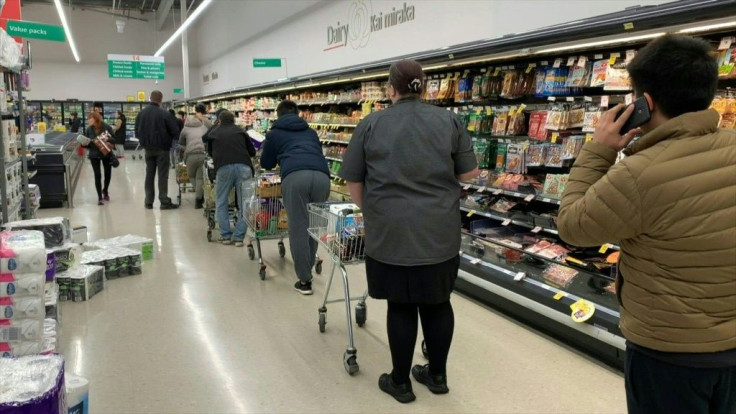New Zealand Election Date In Doubt As Virus Returns
Prime Minister Jacinda Ardern weighed delaying New Zealand's upcoming election Wednesday, as experts investigated whether the coronavirus could have re-entered the country through freight shipments.
Health authorities rushed to implement a rapid lockdown in the country's largest city Auckland, where four more probable infections have been uncovered bringing the outbreak's total to eight.

With 1.5 million people under stay-at-home orders, and millions more at risk of a wider outbreak, Ardern said she was seeking advice on delaying the September 19 election.
Parliament was due to be dissolved on Wednesday to allow the election to take place, but the centre-left leader held off the move until Monday to monitor how the crisis evolves.

"At this stage, it's too early to make any decision but this means there is some flexibility if required," said Ardern, who is well ahead in opinion polls and expected to win a second term.
Leader of the opposition National Party Judith Collins called for a delay until late November, or even next year.

"It is simply unsustainable to expect there to be a fair and just election at a time when opposition parties are not free to campaign," she said.

New Zealand's much envied run of 102 days without community transmission ended abruptly on Tuesday, when four people from one family -- with no history of foreign travel -- tested positive.
Authorities were still trying to piece together the movements of those infected and the source of the latest infections remained unknown.

But national director-general of health Ashley Bloomfield said tests were under way to see if the virus could have been imported via freight, then picked up by a male member of the family, who worked in a cool room for imported goods.
"We know the virus can survive within refrigerated environments for quite some time," he said, revealing a team was at the Auckland site where the man worked.

If the theory is proven, it could have profound implications for international trade flows already battered by the months-long pandemic.
Some of the everyday freedoms New Zealanders had enjoyed were taken away again, with Ardern restricting gatherings in the city to a maximum of 10 people, and urging Aucklanders to wear masks.
Panic buying returned to supermarkets, huge queues formed at COVID-19 testing stations and masked police manned checkpoints on major roads to enforce the new measures.
Nursing homes nationwide were told to shut their doors, with Ardern saying it was the best way to protect vulnerable seniors in facilities that have proved to be transmission hotspots overseas.
The final match of Super Rugby Aotearoa between Auckland Blues and Canterbury Crusaders -- which had been set to take place in front of a sold-out 43,000 crowd at Eden Park on Sunday -- was also in doubt.
New Zealand had been held up by the World Health Organization as an example of how to contain the disease after recording only 22 deaths in a population of five million, and halting community transmission for more than three months.
Bloomfield acknowledged many Kiwis were badly rattled as they come to terms with the return of a virus many thought had been defeated.
"I know the virus re-emerging in our community has caused alarm and the unknown is scary," he said. "(But) we've been here before, we can get through it if we work together."
The virus' return coincided with the Reserve Bank of New Zealand boosting its government bond-buying programme by NZ$40 billion ($26 billion) to NZ$100 billion in a bid to cushion the economy.
Ratings agency S&P Global said it retained a positive outlook for New Zealand, despite the re-occurrence of the virus.
"We believe New Zealand has outperformed nearly all other countries in containing the virus since the onset of the COVID-19 pandemic worldwide," it said.
© Copyright AFP 2024. All rights reserved.





















